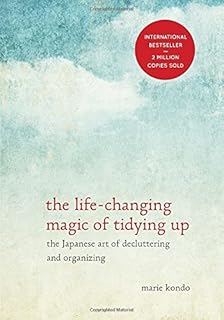otters: Associated Words
Words described by otters & Words describing otters
- clawlessnoun«
- lutranoun«
- eurasiannoun adj«
- enhydranoun«
- piscatoryadj«
- cavortverb«
- clawedverb adj«
- frolickingverb«
- neckedverb adj«
- frolickedverb«
- seanoun«
- cavortingverb«
- twinnoun verb adj«
- frolicnoun verb«
- oiledverb adj«
- swamverb«
- playfuladj«
- linkingverb«
- giantnoun adj«
- ottersnoun«
- glisteringadj«
- swimnoun verb«
- rivernoun«
- swimmingnoun verb adj«
- sportiveadj«
- inhabitverb«
- divedverb«
- alaskannoun adj«
- divenoun verb«
- captivenoun adj«
- aboundedverb«
- tameverb adj«
- inhabitingverb«
- huntedverb adj«
- eatverb«
- freshwaternoun«
- feednoun verb«
- huntnoun verb«
- playingnoun verb«
- huntingnoun verb«
- consumeverb«
- otternoun«
- spendverb«
- trappingnoun verb«
- divingnoun verb«
- catchnoun verb«
- liveverb adj adv«
- marinenoun adj«
- slidingverb adj«
- sleekverb adj«
- floatnoun verb«
- discountnoun verb«
- floatingnoun verb adj«
- catchingnoun verb adj«
- aboundverb«
- wildnoun adj adv«
- foragenoun verb«
- coatedverb adj«
- wrapnoun verb«
- chasingverb«
- babynoun verb«
- atenoun verb«
- landnoun verb«
- disappearedverb«
- youngnoun adj«
- breednoun verb«
- writhingverb adj«
- tendverb«
- deadnoun adj adv«
- slidverb«
- adultnoun adj«
- playnoun verb«
- petnoun verb adj«
- alongadv«
- killnoun verb«
- preynoun verb«
- trappedverb adj«
- slidenoun verb«
- femalenoun adj«
- preferverb«
- twonoun adj«
- killedverb«
- malenoun adj«
- weighverb«
- residentnoun adj«
- skinsnoun verb«
- killingnoun verb adj«
- diedverb«
- playedverb adj«
- trainedverb adj«
- survivedverb«
- includingverb«
- watchnoun verb«
- europeannoun adj«
- livedverb«
- watchingnoun verb«
- belongverb«
- trapnoun verb«
- fishingnoun verb«
- elevennoun adj«
- feedingnoun verb«
- asiannoun adj«
- rarelyadv«
- threenoun adj«
- matenoun verb«
- eatingnoun verb«
- caughtverb«
- manyadj«
- exceedverb«
- includeverb«
- capturedverb«
- spotnoun verb«
- usenoun verb«
- fournoun adj«
- livingnoun verb adj«
- dognoun verb«
- occupyverb«
- fewnoun adj«
- seemverb«
- seeingnoun verb adj«
- rollnoun verb«
- sixnoun adj«
- usuallyadv«
- ninenoun adj«
- fednoun verb«
- individualnoun adj«
- occasionallyadv«
- sawnoun verb«
- frequentverb adj«
- shootnoun verb«
- sometimesadv«
- seenoun verb«
- appearedverb«
- californianoun«
- regularlyadv«
- twelvenoun adj«
- lienoun verb«
- watchedverb«
- appearverb«
- fivenoun adj«
- frequentlyadv«
- sevennoun adj«
- makenoun verb«
- hundrednoun adj«
- leavenoun verb«
- dozennoun adj«
- themselves«
- severaladj«
- remainedverb«
- booknoun verb«
- cameverb«
- grownverb adj«
- becameverb«
- vannoun«
- generallyadv«
- seenverb«
- possessnoun verb«
- eightnoun adj«
- beganverb«
- occasionaladj«
- aroundadv«
- thousandnoun adj«
- sleepnoun verb«
- americannoun adj«
- growverb«
- includesverb«
- occurverb«
- africannoun adj«
- sleptverb«
- although«
- movedverb adj«
- littlenoun adj adv«
- foundnoun verb adj«
- neednoun verb«
- bothadj«
- tookverb«
- tennoun adj«
- nearverb adj adv«
- dependverb«
- sixteennoun adj«
- remainverb«
- mothernoun verb«
- seemedverb«
- morenoun adj adv«
- during«
- whitenoun verb adj«
- movenoun verb«
- specialnoun adj«
- belowadv«
- trainnoun verb«
- arrivedverb«
- indiannoun adj«
- leftnoun verb adj adv«
- bigadj adv«
- twentynoun adj«
- travelnoun verb«
- betweenadv«
- seldomadv«
- canadiannoun adj«
- showedverb«
- oldnoun adj«
- lovenoun verb«
- those«
- selectverb adj«
- beautifuladj«
- comenoun verb«
- fishnoun verb«
- staynoun verb«
- evennoun verb adj adv«
- per«
- brownnoun verb adj«
- throughoutadv«
- thirtynoun adj«
- thinksnoun verb«
- onceadv«
- smallnoun adj adv«
- beingnoun verb«
- basenoun verb adj«
- herenoun adj adv«
- without«
- stillnoun verb adj adv«
- largenoun adj adv«
- keptverb adj«
- waternoun verb«
- continuedverb adj«
- especiallyadv«
- requireverb«
- 100noun adj«
- takenoun verb«
- returnedverb«
- calledverb«
- usedverb adj«
- thoughadv«
- nearlyadv«
- findnoun verb«
- comingnoun verb adj«
- whether«
- lacknoun verb«
- numerousadj«
- helpnoun verb«
- exceptverb«
- keepnoun verb«
- truenoun verb adj adv«
- probablyadv«
- commonnoun adj«
- lednoun verb«
- wentverb«
- firstnoun adj adv«
- actuallyadv«
- nownoun adv«
- todaynoun adv«
- thusnoun adv«
- broughtverb«
- finenoun verb adj adv«
- presentnoun verb adj«
- timenoun verb«
- takenverb adj«
- shownoun verb«
- rangenoun verb«
- laynoun verb adj«
- followedverb«
- madeverb adj«
- whosenoun«
- practicaladj«
- restnoun verb«
- quicklyadv«
- becomeverb«
- followingnoun verb adj«
- againadv«
- continueverb«
- downnoun verb adj adv«
- givenoun verb«
- beforeadv«
- havingverb«
- outnoun verb adj adv«
- withinadv«
- apparentlyadv«
- reachnoun verb«
- dienoun verb«
- togetheradj adv«
- neveradv«
- overnoun adj adv«
- until«
- usingnoun verb«
- alwaysadv«
- makingnoun verb«
- soonadv«
- throughadj adv«
- awayadj adv«
- backnoun verb adj adv«
- underadj adv«
- followverb«
- eachadj adv«
- aloneadj adv«
- onenoun adj«
- formnoun verb«
- muchnoun adj adv«
Sharpen your Skills with the Masters
 Tools of Titans: The Tactics, Routines, and Habits of Billionaires, Icons, and World-Class Performers
Tools of Titans: The Tactics, Routines, and Habits of Billionaires, Icons, and World-Class Performers
 The Life-Changing Magic of Tidying Up: The Japanese Art of Decluttering and Organizing
The Life-Changing Magic of Tidying Up: The Japanese Art of Decluttering and Organizing
 Rise of the Rocket Girls: The Women Who Propelled Us, from Missiles to the Moon to Mars
Rise of the Rocket Girls: The Women Who Propelled Us, from Missiles to the Moon to Mars
 The Elements of Style, Fourth Edition
The Elements of Style, Fourth Edition